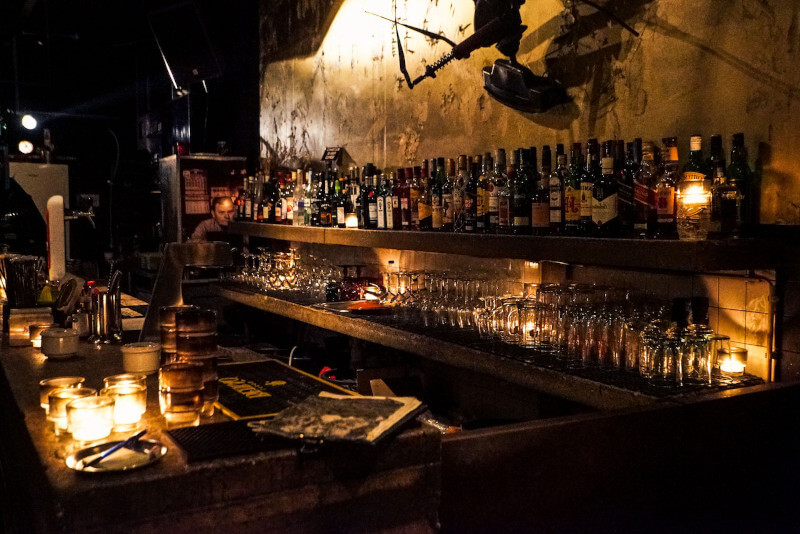You don’t think of whisky when you think of Israel. Dig a bit deeper, though, and you’ll find a nation teeming with the tastes and aromas of parched deserts, sea breezes, and an unmistakable dedication to handiwork. We’re going to show you a side of Israel that you wouldn’t anticipate, a place where old and modern ways of thinking and feeling meet in surprising ways.
Home of Milk and Honey
Milk & Honey was a wonderful idea that launched Israel’s whisky adventure. This pioneering distillery was Israel’s response to the global demand for one-of-a-kind whiskies. Why, then, would one give a whisky distillery a name that alludes to the Bible? Well, we’re talking about Israel, where even the most cutting-edge projects have profound roots in history. The success of Milk & Honey didn’t happen in a single day. Instead, it resulted from the increasing popularity in Israel of artisanal beverages like whisky, beer, and wine.

The master distiller, Tomer Goren, makes an astute observation on the growing demand for single malt in Israel. We’ve seen how popular cocktail lounges are, how influential Israeli vineyards are, and how committed whisky-centric establishments like The Whisky Bar & Museum are to their craft. It’s more than a scene—it’s a cultural shift. The creative mind of Milk & Honey, Gal Kalkshtein, saw the potential. While others were put off by the low immediate payoff, Gal was eager to get started.
Walking on Terrain Both Familiar and Unknown
In 2015, a functioning distillery with casks, copper pots, and an inviting atmosphere opened in the heart of Tel Aviv. However, Milk & Honey didn’t remain isolated for long. Edre’i, Golan Heights, and Jerusalem Distilling Company followed shortly after. However, there are currently no established whisky laws in Israel. How, therefore, do you go when you find yourself in unknown environments? You take what the greatest have to teach you and forge your way. Milk & Honey is just one of many distilleries that draws inspiration from established Scotch practices.
But the weather is a very different issue. The warm and muggy weather in Israel is not at all like the weather in Scotland. Dr. Jim Swan’s knowledge was invaluable in this situation. Dr. Swan, renowned for his expertise in distilling in hot climates, was instrumental in every aspect of the distillery’s development, from building design to barrel choice. The heat in Israel speeds up the aging process, allowing the flavors to be extracted from the barrels more quickly. While advantageous, this rapid maturity draws scrutiny to the choice of barrels. Gal is proud of their wood management, and a trip to their warehouse will highlight the fascinating cask variations they use, from Islay Scotch casks to Sherry barrels and Jamaican rum barrels.
Notable Whiskies:
- The youthful single malt of Milk & Honey: Initially dubbed as such because of its rapid maturation in Israel’s environment.
- Single malt from Edre’i that pays special attention to its environment: Malted in-house with grain imported straight from Israel.
Edre’i’s Aspirations, or, Chasing the Perfect Storm
Edre’i Distillery is shooting for the stars if Milk & Honey lay the groundwork. It was founded by Yechiel Luterman, who set out to create a whisky that embodies the spirit of Israel. Luterman’s passion comes from his attachment to Israel as well as his appreciation of single-malt whisky. After leaving Canada, he settled in Israel to make whisky from barley farmed there. He followed his dream and entered the malting industry, drawing on his background in winemaking in Israel. His insight? A single malt that captures the essence of Israel in a bottle.
As with any groundbreaking endeavor, Israel’s whisky sector faces certain challenges intrinsic to its unique environment and the broader whisky market. Here’s a dive into some of these barriers, coupled with potential strategies to mitigate them.
1. Climatic Constraints:
Israel’s climate, characterized by intense heat and varying levels of humidity, differs significantly from traditional whisky regions like Scotland. While it accelerates the aging process, this rapid maturation may affect the flavor profile, potentially deviating from what seasoned whisky enthusiasts expect.
Solution: Distilleries like Milk & Honey and Edre’i have already begun tapping into Dr. Jim Swan’s expertise, focusing on unique cask varieties to manage accelerated maturation. By continuously experimenting and refining barrel choices and aging locations (like near the Dead Sea, as mentioned in the article), Israeli distilleries can develop a distinct profile that both resonates with traditionalists and appeals to a newer audience.
2. Lack of Regulatory Framework:
Unlike countries with established whisky traditions, Israel lacks a robust legal definition and standard for whisky production. This absence can lead to inconsistent product quality and affect brand trust.
Solution: While many distilleries lean on Scotch standards, Israel could create its unique regulatory framework. Drawing from the best practices of established whisky nations and integrating its nuances, Israel could ensure consistent quality while fostering innovation.
3. Market Skepticism:
Being a newcomer, Israel might face skepticism from whisky enthusiasts accustomed to offerings from traditional regions. This skepticism can impact market penetration and brand loyalty.
Solution: Position Israeli whisky as a premium, the unique offering is essential. By emphasizing its ties to the Israeli terroir, as Yechiel Luterman from Edre’i is doing, and incorporating Israel’s rich history and culture, distilleries can create a compelling brand narrative. Hosting tastings, partnering with established bars, and joining global whisky events can further boost visibility and acceptance.
4. Investment Hesitation:
As Gal Kalkshtein pointed out, the long return on investment has deterred many potential investors from venturing into the Israeli whisky scene. This hesitation can stymie the growth of the industry.
Solution: Offering incentives, tax breaks, or grants to budding distilleries could provide the initial push. Engaging in collaborative ventures with established global distilleries can also offer the needed mentorship and financial support.
5. Resource Limitations:
Israel’s aspiration to use locally-sourced barley, as Edre’i aims to, might face challenges due to the limited commercial malt houses in the region.
Solution: Investing in local agricultural research can boost barley production suited for the climate. Distilleries can pool resources, fostering a cooperative approach to develop shared malting facilities, thereby reducing costs and ensuring a steady supply.
The Weather: Israel’s Hidden Strength

Israel has a very diverse climate, ranging from the balmy Tel Aviv coast to the stark dryness of the Golan Heights. The Milk & Honey lab is full of experiments that are designed to take advantage of the special atmosphere there. Gal says that the unique conditions around the Dead Sea are perfect for aging barrels. Air pressure, salt, or extreme dryness in the location may combine to create a whisky that blows our minds.
We see great promise in Israel’s whisky, which can represent the country’s rich cultural diversity in addition to being a delicious beverage. This is an open invitation to sample something from Israel besides the well-known milk and honey.

